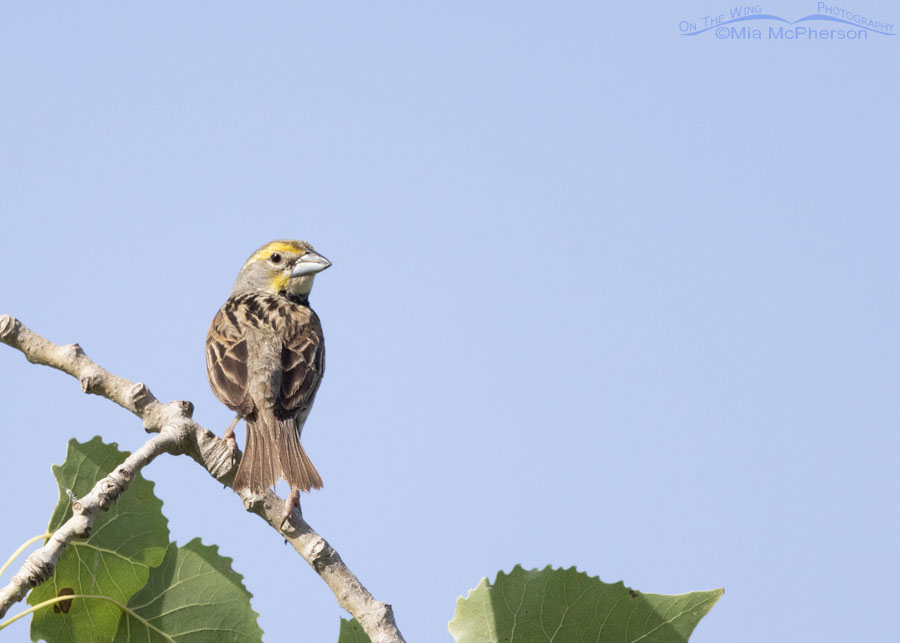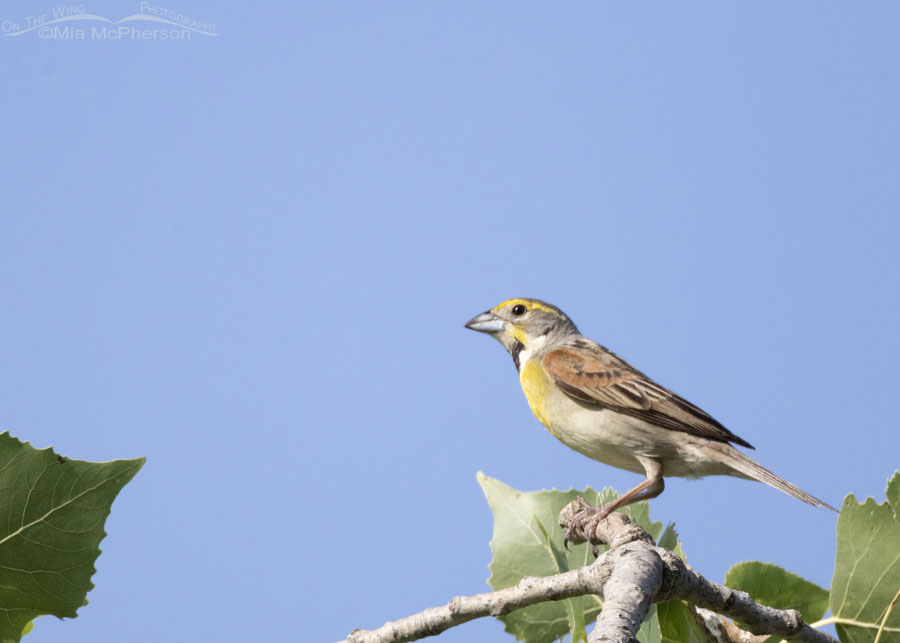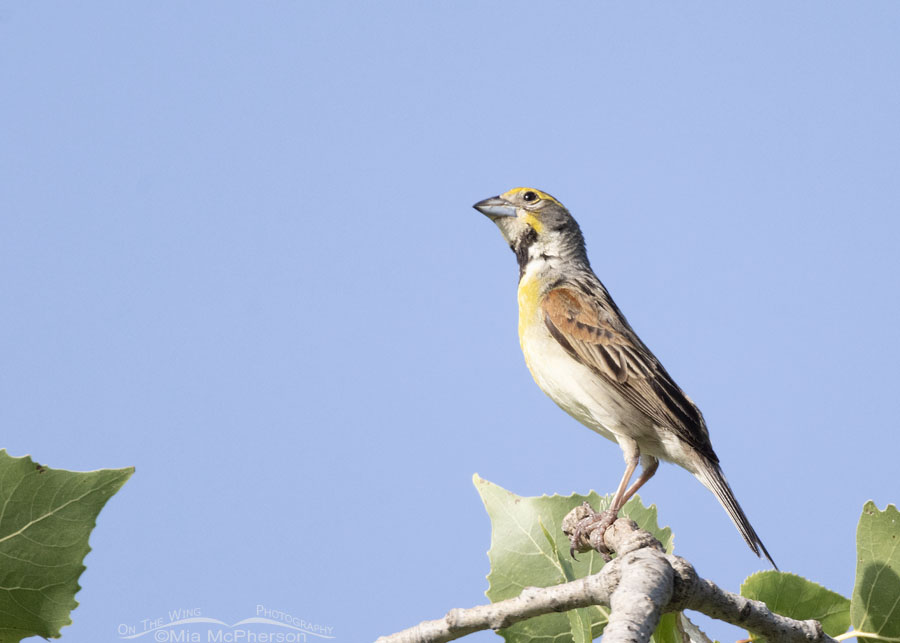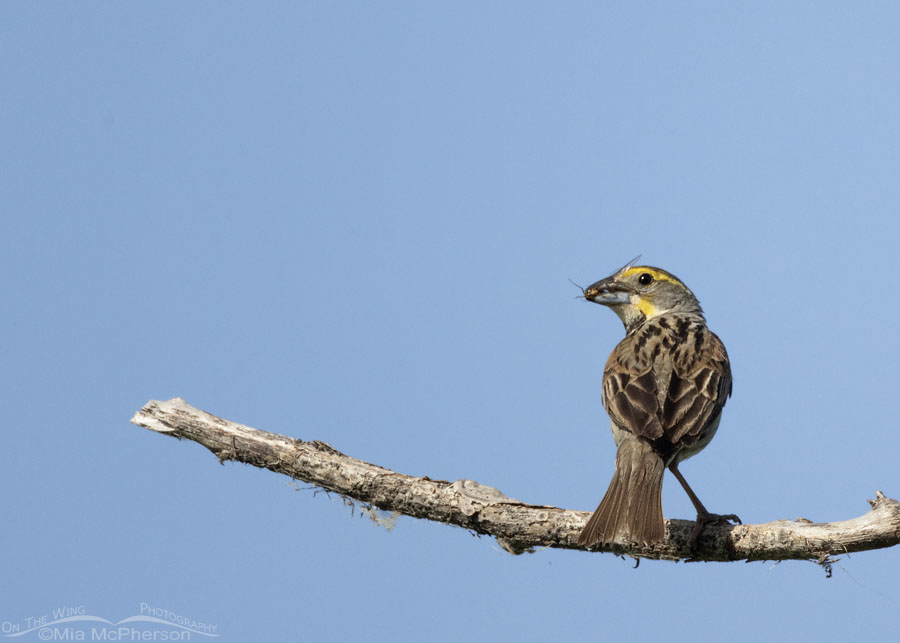The subject today is my lifer Dickcissel photos taken at Sequoyah NWR in Oklahoma. Huge thanks go to my friend Steve for putting me on this male.
 Dickcissel adult male back view – Canon R7, f11, 1/1000, ISO 1250, +1.0 EV, Canon RF 800 mm, natural light
Dickcissel adult male back view – Canon R7, f11, 1/1000, ISO 1250, +1.0 EV, Canon RF 800 mm, natural light
Steve had put his RF 800mm lens on the Canon R7 that he has generously loaned me the use of while I am visiting him. Without that reach the Dickcissel would have been smaller in the frame than what he is.
 Male Dickcissel in a cottonwood tree – Canon R7, f11, 1/1000, ISO 800, +0.7 EV, Canon RF 800 mm, natural light
Male Dickcissel in a cottonwood tree – Canon R7, f11, 1/1000, ISO 800, +0.7 EV, Canon RF 800 mm, natural light
Dickcissels look a little bit like sparrows but they are actually in the Cardinalidae, or Cardinal, family and are not related to sparrows at all. Thanks to Steve, I know that this species is named for its song which sounds like dick-dick-cissel.
 Adult male Dickcissel in pre-lift off pose – Canon R7, f11, 1/1000, ISO 800, +0.7 EV, Canon RF 800 mm, natural light
Adult male Dickcissel in pre-lift off pose – Canon R7, f11, 1/1000, ISO 800, +0.7 EV, Canon RF 800 mm, natural light
Dickcissels are seed-eating, migratory birds that breed in in prairie grasslands. They are found from eastern Montana and the Great Lakes region through the Mississippi River Valley and south to Texas and the Gulf Coast. This species spends the winter in the tropics.
 Adult male Dickcissel with a mayfly – Canon R7, f11, 1/1250, ISO 800, +0.7 EV, Canon RF 800 mm, natural light
Adult male Dickcissel with a mayfly – Canon R7, f11, 1/1250, ISO 800, +0.7 EV, Canon RF 800 mm, natural light
This male Dickcissel was fairly cooperative because it was focused on catching mayflies which were very abundant yesterday.
It has been a thrill for me to see Dickcissels and to photograph them on the refuge. I may have seen this species without even knowing it when I was a child but I now count them as a lifer because I took photos of them. I hope that I will be able to take more!
Life is good.
Mia
Click here to see more of my Dickcissel photos. I will be adding more when I have time.





Oh my guess this is another bird I have never seen or heard of. Thanks for the information.
How fun to find and photograph. I have never seen one but have seen many photos.
Love seeing all these birds we don’t have in the west, well, at least Utah. Looks a little like a grosbeak family
I thought it look grosbeaky too.
Congratulations! What a nice find. Thanks for sharing.
What a beauty. More happy dances? I expect so.